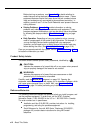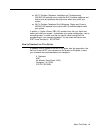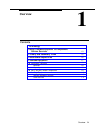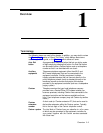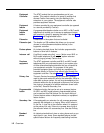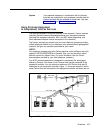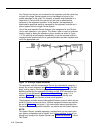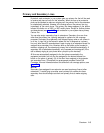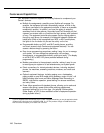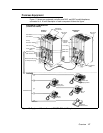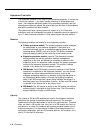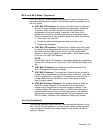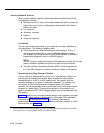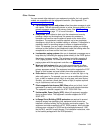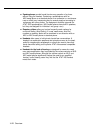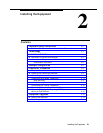
Features and Capabilities
Your equipment controller supports the following features to complement your
Centrex services:
■
■
■
Multiple line assignments, permitting more flexible call coverage. For
example, the equipment controller automatically assigns all lines to the
first phone connected to the equipment controller, to serve as a possible
receptionist’s position. In addition, you have the option of assigning
secondary lines at other phones, to provide Local Call Coverage, so that
a person can answer calls on a line when the line’s primary user is absent
or busy. The equipment controller also passes Centrex ringing patterns
through to each phone (for example, to distinguish between outside and
inside calls). When a line is assigned to an MLS- or MLC-model phone,
the lights on the line button let you see the activity on the line.
Programmable buttons on MLS- and MLC-model phones, providing
one-touch access to both Centrex and equipment features). You can
access a feature simply by pressing the button.
Easy-to-use programming procedures, making it easy for you to manage
your system. You can change line assignments, call coverage
arrangements, or programmable buttons, quickly and easily. (The display
on an MLS-34D or MLS-12D phone provides feedback during
programming.)
Modular connections to the equipment controller, making it easy for you
to reconfigure your system or to add extensions as your system grows.
Direct connections for industry-standard devices—including standard
phones, fax machines, answering machines, modems, and credit card
scanners.
Optional equipment features, including paging over a loudspeaker
paging system or over MLS-model phone speakers, music on hold*, call
detail recording (also known as Station Message Detail Recording, or
SMDR), night service operation, speed dialing, line access restrictions,
and many others.
Power failure operation with standard phones, allowing you to make and
■
■
■
■
answer calls during a power failure while retaining programmed
equipment settings for up to four days. (An optional Uninterruptible
Power Supply, or UPS, is also available to allow full equipment operation
during a power failure.)
*
If you use equipment that rebroadcasts music or other copyrighted materials, you may be required to obtain
a license from a third party such as ASCAP or BMI. Or, you can purchase a Magic on Hold® device from
AT&T that does not require you to obtain such a license.
1-6 Overview



